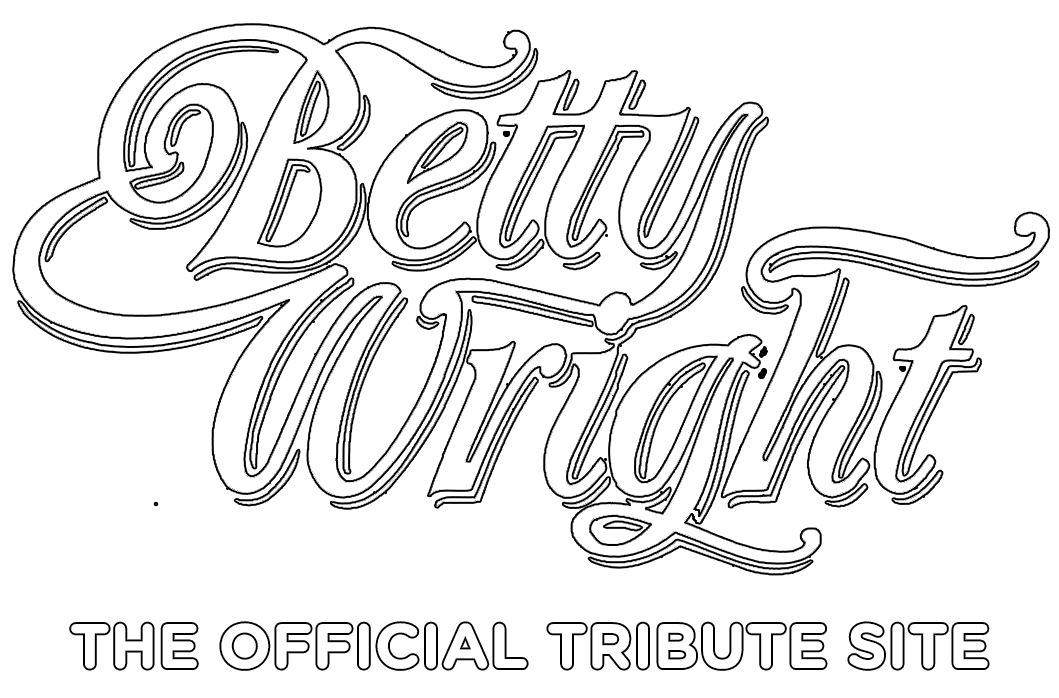Discography
I Love the Way You Love (1972)
Tracklist
I Love the Way You Love
I'll Love You Forever Heart and Soul
I Found That Guy
All Your Kissin' Sho' Don't Make True Lovin'
If You Love Me Like You Say You Love Me
Clean Up Woman
I'm Gettin' Tired Baby
Pure Love
Ain't No Sunshine
Don't Let It End This Way
Let's Not Rush Down the Road of Love
Stream
Apple Music / Amazon / Tidal / YouTube Music
About the Album
by Jason A. Michael
I Love the Way You Love, Betty’s second album, was the first to be produced in its entirety by the duo of Willie Clarke and Clarence Reid. RateYourMusic.com calls the album “a stunning collection of luscious ballads, killer funk and bluesy, jazzy contemplations.” Released in February 1972, five of the album’s 11 tracks were written by Clarke-Reid, including If You Love Me Like You Say You Love Me, I’m Gettin’ Tired Baby, Pure Love, Let’s Not Rush Down the Road of Love and Clean Up Woman. Betty maintained that she had helped write Clean Up Woman without being given credit and more than 20 years after its release, Reid would correct the error and add Betty to the credits.
There was a nearly four-year gap between Betty’s debut album, My First Time Around, and I Love The Way You Love. In the interim, Henry Stone and Alston Records would continue to release stand-alone singles including The Joy of Becoming a Woman (Alston 4575) and a cover of the 1962 Shirelles song Soldier Boy (Alston 4581). Before I Love was released in February 1972, Alston released four singles from the album. The first, the Clarke-Reid penned Pure Love (Alston 4587), was in released in 1970 and reached #40 R&B. Pure Love, like so many of the songs she sang from the beginning, has the 17-year-old Betty knee deep in adult content. Here she sings about a love with “nothing phony about it” and Betty’s unbridled devotion makes this one a bedroom banger that stands the test of mine. The single’s B-side, which didn’t make it onto the album, is If You Ain’t Got It, a funky little song where Betty puts it plainly: “If you ain’t got it, forget it. It ain’t yours to have.”
The next single, I Found That Guy (Alston 4589), failed to chart. Betty gives a particularly tender turn on the song, which was originally released by Motown superstars The Jackson 5 as I Found That Girl. The song appeared on the B-side of the #1 pop/#1 R&B smash The Love You Save in 1970 (Motown M-1166). I Found That Girl was written by The Corporation, a group of songwriters quickly assembled to write hits for The Jackson 5 once they were signed to Motown in 1969. The Corporation consisted of Berry Gordy, Alphonso Mizell, Fred Perren and Deke Richards. Interestingly, I Found That Guy was the only song on The Jackson 5’s second album, ABC, that featured Jermaine Jackson on lead. Years later, Betty would actually work and enjoy a friendship with Jermaine Jackson a decade or so later.
The title track, I Love the Way You Love (Alston 4594), would only reach #44 R&B. Like with Pure Love, Betty is direct, asking her man “to come on and thrill me, baby” and “end all her misery.” Great strings, arranged by Mike Lewis, and a guitar solo by Little Beaver is the icing on the cake.
The fourth single, Clean Up Woman (Alston 4601), would hit instantly. Featuring a prominent opening lick by guitar virtuoso Willie “Little Beaver” Hale, the guitarist was two years shy of his own success with the TK-distributed Cat Records single Party Down. The song went to #6 pop and #2 R&B, where it stayed for eight weeks. Clean Up Woman literally launched Betty’s career and transported her to the big time. But it all almost didn’t happen as Betty didn’t really care for the song at the time she recorded it. “I just thought the song didn’t have any kind of range,” she recalled for a 2012 interview with Record Collector. “I realized later people love those songs cause they can sing along with them.”
Clean Up Woman would go on to sell over six million copies worldwide and garner Betty her first Grammy nomination for Best R&B Vocal Performance Female. She lost the award to Aretha Franklin’s Young, Gifted and Black. A feature by Rolling Stone writer Vince Aletti that reviews this album and those of Betty’s contemporaries – Denise LaSalle’s Trapped by a Thing Called Love and Laura Lee’s Women’s Love Rights – says of Clean Up Woman, “The advice this time, delivered in a tough, I-know-what-I’m-taking-about style over a terrifically relentless intertwined guitar and bass line, is about the woman just waiting around to pick some other girl’s leftovers.”
Speaking of Hale and his guitar line, Little Beaver actually co-wrote four of the songs on the album – the title track, All Your Kissin’ Sho’ Don’t Make True Lovin’, Don’t Let It End This Way and I’ll Love You Forever Heart and Soul, which was Betty’s single co-write on the album. Never again would Betty contribute so little in the way of lyrics to an album. But even when she was given credit, it wasn’t hers alone. A bad management contract with Clarke gave him a 25% writer’s royalty credit on any tunes she composed. On I’ll Love You Forever, Betty finally sounds a little more like her actual age. Not that she’s lacking anything vocally on the track, but the lyrical content of the song is more in line with the thoughts of a 17-year-old falling in love for the first time.
TK and Alston were a real family affair and on this album and, in addition to Hale, are early Miami soul stars Snoopy Dean on bass and guitar, Arnold Albury and Benny Latimore who, like Hale, would hit it big in 1974 on the TK-distributed Glades record label with the smash Let’s Straighten It Out. Once again, The Reid Singers – Clarence, Betty and whosever else happened to be around – would provide backing vocals and Mike Lewis would masterfully arrange the strings and horns.
An additional single, If You Love Me Like You Say You Love Me (Alston 4609) was released from the album in 1972. The song reached #21 R&B and it’s B-side, I’m Gettin’ Tired Baby, made it to #42. If You Love Me is the more up-tempo of the two with a thumping tambourine used to great effect and a prominent piano part. On I’m Getting’ Tired, Betty is clearly disgusted with her man and she is not having it any longer. Reid is heard clearly here in the background and it’s a reminder than in addition to writing and producing, Reid was also Betty’s labelmate. He would release three albums on Alston before focusing his attention to his X-rated party record character Blowfly.
The second cover song on the album Ain’t No Sunshine started out as a B-side. Bill Withers, with a brand-new deal with Sussex Records, released the single Harlem in 1971 (SUX-219). Harlem didn’t hit, but Ain’t No Sunshine became an instant classic. It sold more than a million copies and went to #6 R&B and #3 pop. A month after the release of the I Love The Way You Love album, Ain’t No Sunshine would also go on to win a Grammy as the 1972 R&B Song of the Year. Betty’s version is not as instrumentally sparse as the original with beautiful strings throughout. Still, she sounds as anguished as Withers on the track. In fact, she sounds downright miserable in the most beautiful way.
I Love The Way You Love, the album, peaked at #32 R&B/#132 Pop. Chart positions aside, I Love The Way You Love showed that Betty had blossomed since her debut album three years earlier. At 17, she wasn’t even technically an adult. But you couldn’t tell that from her soulful, powerfully fully grown voice. Rolling Stone said the I Love the Way You Love album put Betty “in the front lines of rough’n’ready woman singers” and we would certainly agree!


